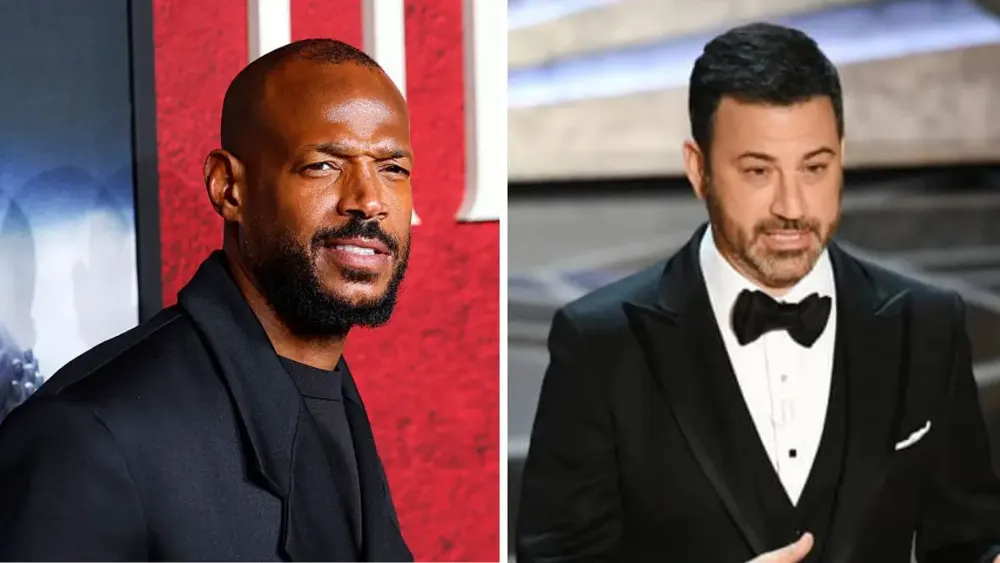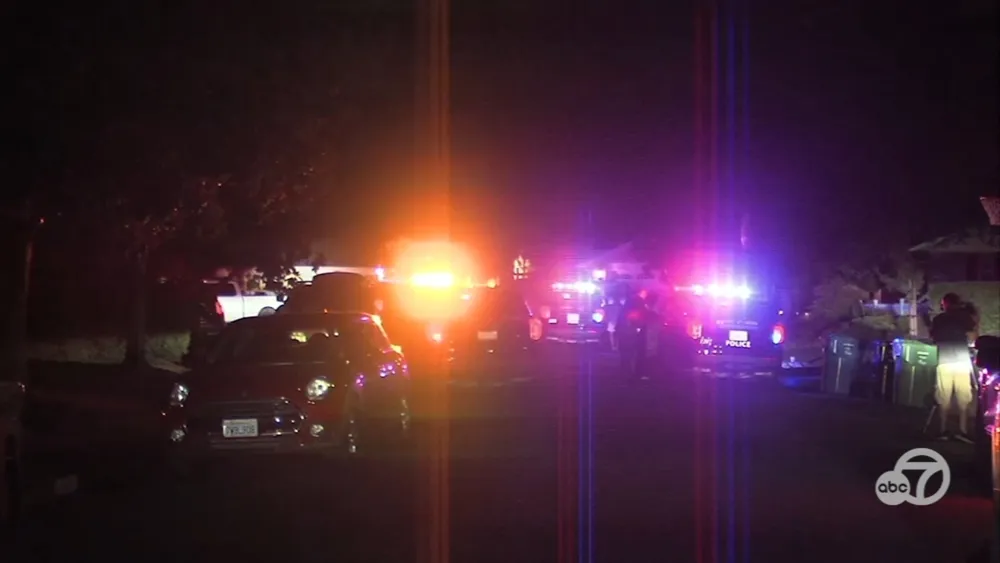‘Welcome to Black America, Jimmy’: Marlon Wayans Turns Jimmy Kimmel’s Suspension Into a Reality Check as His Comments Sparked a Social Media Frenzy

Actor and comedian Marlon Wayans has seen this movie before, and he knows how it ends, or maybe begins. Following the recent suspension of Jimmy Kimmel's late-night show, Wayans didn't mince words when he drew stark parallels between the ABC host's current predicament and the systemic silencing that Black entertainers have endured for decades. Marlon Wayans believes Jimmy Kimmel is experiencing the same type of professional retaliation that Black performers have endured for years. (Photo by Leon Bennett/Getty Images for Universal Pictures; Kevin Winter/Getty Images) Speaking at the premiere of his new thriller "Him," Wayans offered a perspective that cut through the political noise surrounding Kimmel's indefinite removal from the airwaves. ‘Now Is Not the Time to Be a Token Nicca’: Fans Call Out Marlon Wayans for Seemingly Condemning Black Folks Who Defended Security Guard After He Was Jumped By a White Mob at Alabama Riverfront "This is America, This is America," he repeated, likely referring to Donald Glover's Grammy-winning 2018 track of the same name. "What we're seeing is not something that I, me, myself — as a Black man — have seen before. You know, I just think it's a shame, and I think every single American loses because of this," Wayans told “Access Hollywood.” The suspension came after Kimmel made comments about the public's reaction to right-wing activist Charlie Kirk's death on his Monday night show, sparking outrage from conservative circles and ultimately leading ABC to pull the plug on "Jimmy Kimmel Live!" after more than two decades on air. “The MAGA Gang desperately trying to characterize this kid who murdered Charlie Kirk as anything other than one of them and doing everything they can to score political points from it,” Kimmel said on his show. "In between the finger-pointing, there was grieving." Wayans, however, wasn't ready to let the moment pass without acknowledging the broader implications of what he was witnessing. "There is no ending, guys. Artists and voices, like Jimmy Kimmel, we have to be courageous,” he continued, framing the indefinite suspension of the show not as defeat but as an opportunity for creative resilience. “It's a new beginning. You can't stop the dunk. He just made me create a new land, that's all.” The entertainment industry's history is littered with cautionary tales of performers who dared to speak against the grain, and Wayans seemed acutely aware of this legacy. Dick Gregory, the pioneering comedian and civil rights activist, faced FBI surveillance and targeted harassment campaigns designed to "neutralize" his influence. J. Edgar Hoover's 1968 memo explicitly outlined plans to silence Gregory through "sophisticated, completely untraceable means," even suggesting collaboration with organized crime figures to undermine the comedian's credibility and safety. Similarly, Eartha Kitt's career was systematically dismantled after she refused to perform for segregated audiences and spoke out against the Vietnam War during a 1968 White House luncheon. According to White House History, her blunt criticism of sending young Americans to fight overseas while domestic issues remained unaddressed led to her being blacklisted from major U.S. venues for nearly a decade, forcing her to rebuild her career in Europe and Asia. The social media response to Wayans' comments revealed the complex emotions surrounding Kimmel's situation. The Neighborhood Talk's coverage of the interview generated passionate reactions from viewers who saw familiar patterns in unfamiliar territory. View this post on Instagram A post shared by The Neighborhood Talk (@theneighborhoodtalk) "Facts!!! Welcome to Black America Jimmy," one user wrote, highlighting the irony of a mainstream white entertainer experiencing the kind of professional consequences that Black voices have long navigated. Another commenter observed, "We've BEEN living in AmeriKKKa so this ain't new to us," while others interpreted Wayans' measured response differently: "In other words, Marlon said 'that ain't right but this ain't my fight.'" One particularly pointed response noted, "Basically he said shows get canceled everyday B.. But when it happens to us yall dont have this type of conversation." The controversy intensified when former Fox News host Megyn Kelly launched her own social media offensive against Kimmel, claiming he had spread false information about the suspected perpetrator's political affiliations. Kelly's inflammatory posts, filled with threats and accusations, ironically demonstrated the very kind of inflammatory rhetoric she claimed to oppose. Her assertion that Kimmel had "falsely stated as a fact" information about the suspect contradicted the actual content of his monologue, where he had discussed attempts to distance the 22-year-old Utah man’s from certain political movements rather than making definitive claims about his affiliations. For Wayans, who has spent decades navigating an industry where creative expression from African-Americans often comes with professional risks, Kimmel's situation is familiar to him and other Black entertainers. His comments suggest an understanding that artistic courage requires accepting potential consequences while continuing to create and speak authentically. “Nobody lost their job when they mocked George Floyd though," one Neighborhood Talk pointed out, adding another layer to this frustration.

